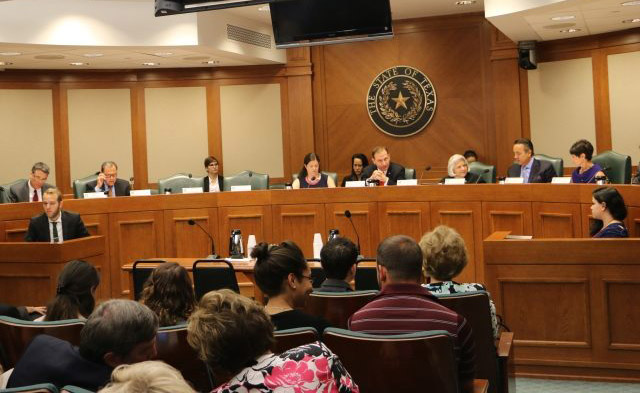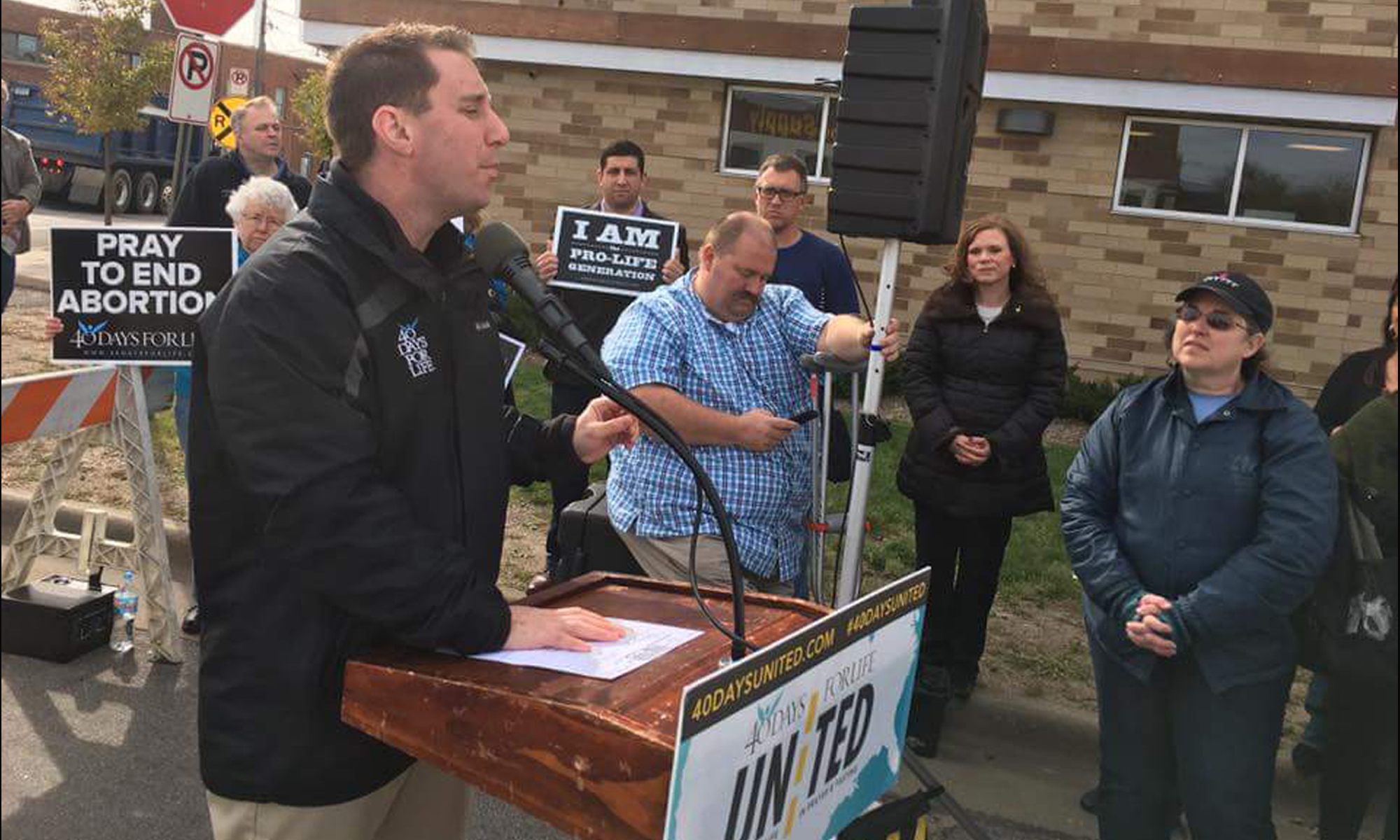
AUSTIN, Texas (BP) — The apparent lack of oversight regarding the donation of human fetal tissue and the possible circuitous implementation of policies overseeing the regulation of Texas’ 22 abortion facilities drew focus during the Texas Senate Health and Human Services Committee hearing July 29.
Senators sought to determine if state laws were violated following the revelation that Texas abortion providers, particularly Planned Parenthood Gulf Coast (PPGC), may have sold aborted fetal organs for profit.
 The investigations are in response to undercover videos released by the Center for Medical Progress (CMP), purportedly showing the illegal sale of fetal organs to individuals acting as biomedical company representatives. The HHS committee heard testimony from Texas Attorney General Ken Paxton, Department of State Health Services (DSHS) commissioners, Texas Health and Human Services Commissioner, and Texas pro-life organization representatives. Planned Parenthood representatives were invited to testify but responded with a letter refusing to appear, with the PPGC president dismissing the hearing as a farce and “political gamesmanship.”
The investigations are in response to undercover videos released by the Center for Medical Progress (CMP), purportedly showing the illegal sale of fetal organs to individuals acting as biomedical company representatives. The HHS committee heard testimony from Texas Attorney General Ken Paxton, Department of State Health Services (DSHS) commissioners, Texas Health and Human Services Commissioner, and Texas pro-life organization representatives. Planned Parenthood representatives were invited to testify but responded with a letter refusing to appear, with the PPGC president dismissing the hearing as a farce and “political gamesmanship.”
Sen. Charles Schwertner, HHS Committee chairman, called the emergency hearing to determine if state or federal laws were broken regarding the procurement and dissemination of fetal remains and to determine what, if any, Texas statutes and regulatory provisions are in place to monitor the program. Federal law forbids the sale of fetal tissue and organs but allows the donation of such remains.
On July 15, in statement, Paxton announced his office had launched an investigation into what he said is Planned Parenthood’s “calculated slaughter of human babies to maximize the available body parts they plan to sell.”
During his testimony, Paxton could not answer specific questions due to the ongoing investigation but did acknowledge his office had “hours of video recordings involving a Texas branch of Planned Parenthood.” Paxton said the videos “appear to be consistent” with recordings released in recent weeks revealing conversations between the undercover investigators and high-ranking Planned Parenthood officials.
“But more than any misdeeds involving the sale of aborted baby parts is this fundamental truth: the true abomination in all this is the institution of abortion,” Paxton said.
One CMP video, released August 4, focused exclusively on the PPGC flagship facility in Houston. On the video, PPGC Director of Research Melissa Farrell is heard discussing payment for human fetal remains. PPGC staff also discuss the gestational age of the aborted babies as being between 16-22 weeks. Texas law forbids abortions past 20 weeks except in the direst of circumstances for the mother.
Testimony from DSHS commissioners Kirk Cole and Kathryn Perkins and Texas Health and Human Services Executive Commissioner Chris Traylor revealed the absence of state oversight of the federally regulated donation of fetal tissue. While DSHS regularly inspects abortion clinics and ambulatory surgical centers for state statute compliance, the agents’ surveys do not include investigation of aborted fetal tissue and organ donation protocol.
And while DSHS inspectors determine if clinics abide by state policy related to the general operation of the clinic, there is no means by which agents review abortion procedures to ensure they are performed according to the law other than reviewing selected medical records. But in the first two CMP videos, top Planned Parenthood doctors said the in utero presentation of the baby is sometimes altered in order to optimize procurement of undamaged organs.
Kathyrn Perkins, DSHS commissioner for regulatory services, and Abby Johnson, former Bryan-College Station Planned Parenthood director, gave conflicting testimonies regarding the spontaneity of clinic inspections.
Perkins told the committee abortion clinic inspections were unannounced and performed every 10-14 months for clinics providing abortions up to 16 weeks of pregnancy and once every three years for the ambulatory surgical centers performing abortions from 16-20 weeks of gestation.
“That is blatantly false,” Johnson told committee members. “We knew exactly when they were coming…. We were allowed to pull (records) ahead of time so we would be able to scrub charts and make sure everything looked accurate before they were reviewed.”
Johnson’s clinic was part of the group of Planned Parenthood clinics associated with PPGC. She said other PPGC clinic managers also knew when DSHS would arrive for inspections.
When the Senate committee later recalled the commissioners, Perkins was asked if abortion clinic employees were notified of DSHS inspections.
“Not to my knowledge,” Perkins responded. “What I was speaking to was our current policies and procedures and how we do things.”
The statute mandates unannounced inspections. Perkins said she would investigate to determine if agents and clinic directors were in communication about upcoming inspections.
Johnson also disputed the claims by Cecile Richards, president of Planned Parenthood Federation of America, that abortion clinics are merely reimbursed for their costs of procuring, storing and shipping aborted fetal tissue and organs. The undercover videos indicate a negotiable price range for the organs.
Johnson, who left the abortion industry in 2009, testified the Bryan-College Station clinic received “$200 in compensation per baby.” She said the expense to the clinic for collecting and storing the fetal remains is negligible. The only cost her clinic might have incurred would be a $5-$10 shipping fee.
“Not $200. That is sheer profit for Planned Parenthood,” Johnson said.
Johnson calculated that the PPGC Houston abortion clinic, which collects 260 pounds of fetal remains every month, could make as much as $120,000 per month.
Sen. Charles Perry, R-Lubbock, asked if the state could examine clinic financial records as part of the regular inspections to determine if the non-profit Planned Parenthood is indeed operating as such. Reviewing financial records is not part of the DSHS inspection.
In her letter to the HHS Committee Chairman Sen. Charles Schwertner, PPGC President Melaney A. Linton said, “We believe this committee has no desire to hold a responsible, fair, fact-driven hearing. In fact, this committee cares more about political gamesmanship than the truth.”
Linton’s letter and that of Kenneth Lambrecht, president of Planned Parenthood Greater Texas (PPGT) — an association of Planned Parenthood clinics in north and central Texas — were received by the committee only 30 minutes prior to the meeting despite repeated inquiries by senate staff members the previous week seeking confirmation of the abortion providers’ participation in the hearing.
Perry noted during opening comments, “By Planned Parenthood not being here shows the contempt they have for this process and this committee.”
Sen. Lois Kolkhorst, R-Brenham, concurred. She called the letter “an affront to us as elected officials.”
Schwertner noted the written statement from PPGC would not be entered into the record because the organization failed to submit the required witness card with the statement. More than three hours into the four-and-a-half hour hearing, Deborah Hiser, a lawyer representing PPGC, arrived at the hearing to fill out the proper form.
Schwertner repeatedly asked her if she wanted to testify on behalf of her clients, but Hiser declined, stating the abortion provider was under active investigation and had been subpoenaed by Paxton.



.jpg)
















